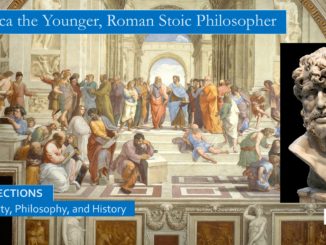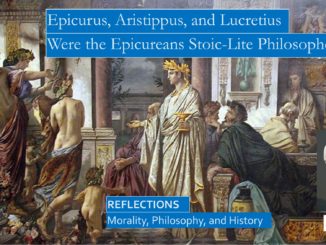
Seneca, Moral Epistles, Blog 6, Stoicism and the Golden Rule
Seneca warns us not “to trust the countenances of those whom we meet.” Men may appear to be kind smiling kind in their appearances but often men possess souls of brutal beasts in their hearts. The difference is beasts may attack you when they first encounter you from fear or hunger, but once your paths depart beasts will usually not pursue you further. Men, however, scheme and often delight in destroying one another, making each other’s lives miserable. […]


